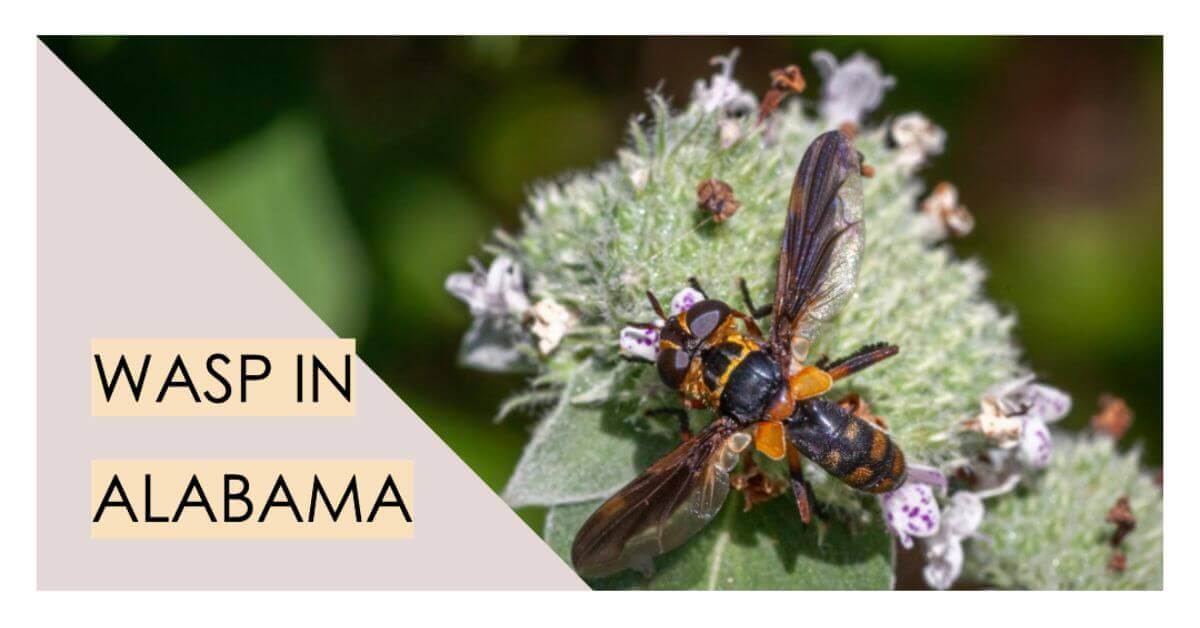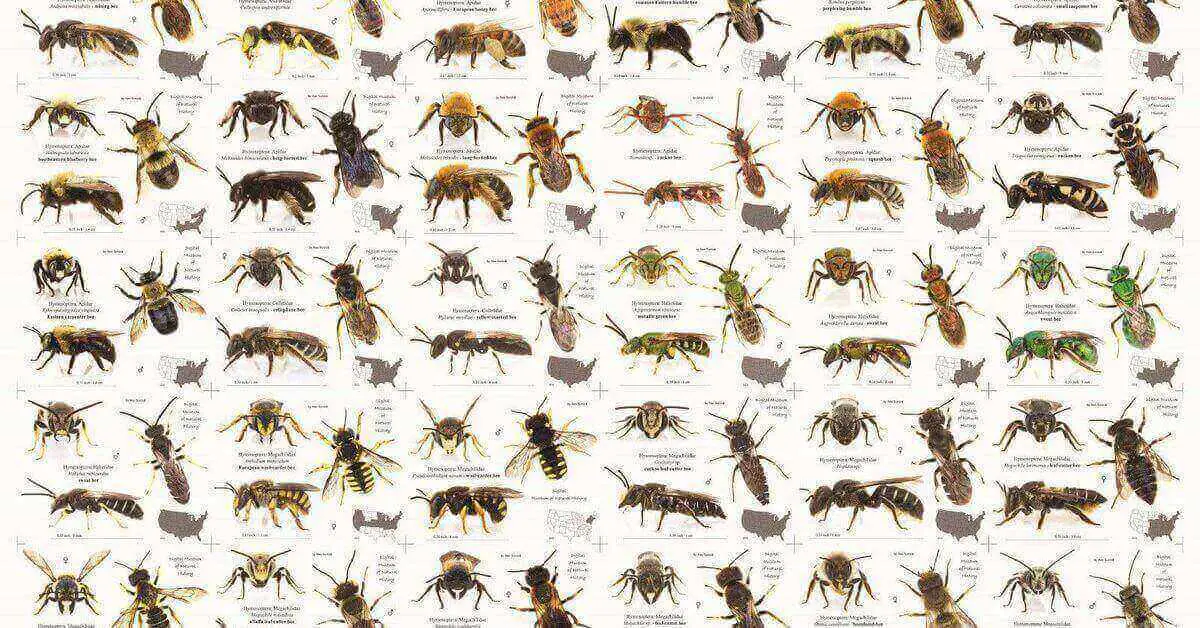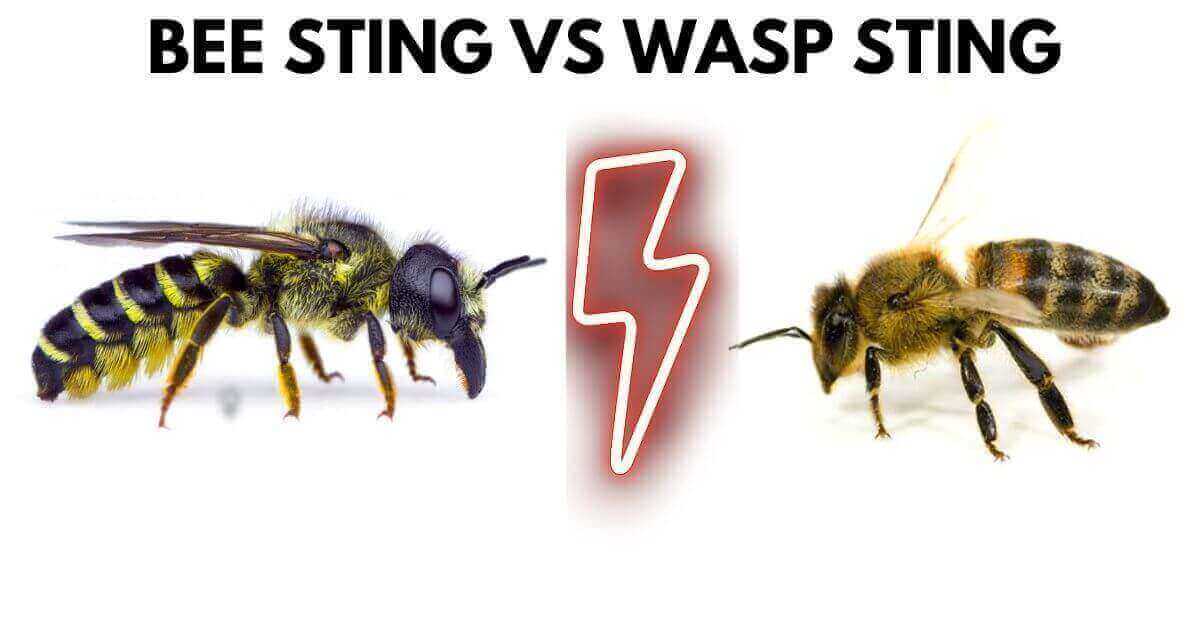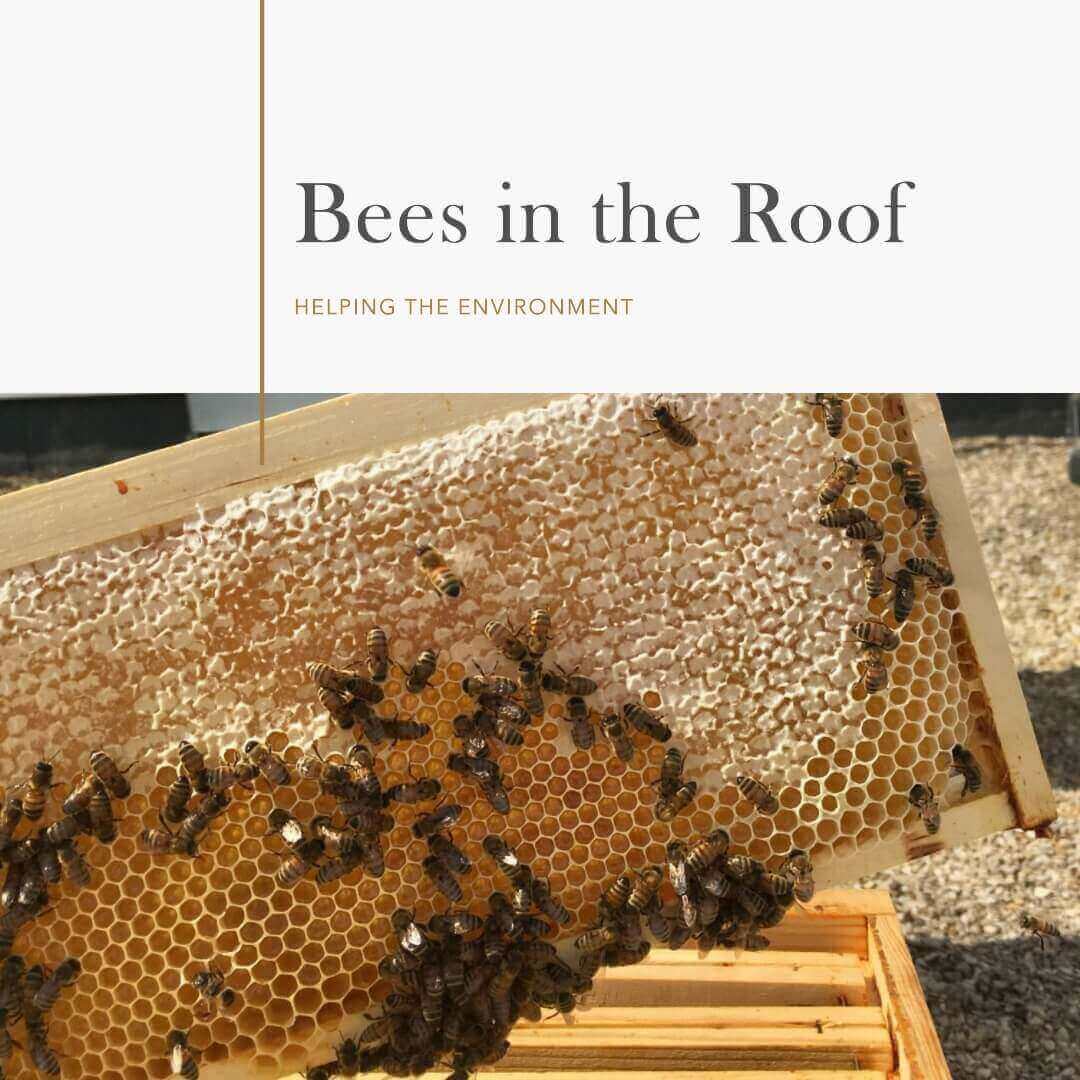Alabama is known for its natural beauty and warm climate, but it also plays host to various species of wasps and hornets, including the notorious red wasp, black hornet, black and white wasp, and bald-faced hornet. While these creatures are essential for ecological balance, they can pose a threat to humans due to their painful stings. In this blog, we will explore each of these insects and provide effective and safe methods to get rid of them from your surroundings.
| Wasp Species | Scientific Name |
| Paper Wasp | Polistes spp. |
| Yellowjacket | Vespula spp. |
| Hornet | Vespa spp. |
| Cicada Killer Wasp | Sphecius speciosus |
| Mud Dauber Wasp | Sceliphron caementarium |
| Great Golden Digger Wasp | Sphex ichneumoneus |
| Red Wasp | Polistes carolina |
| Bald-faced Hornet | Dolichovespula maculata |
Alabama Red Wasp
The Alabama red wasp, scientifically known as Polistes carolina, is a common and aggressive species found throughout the state. These reddish-brown wasps build paper-like nests under eaves, porch ceilings, and in shrubbery. To eliminate red wasps safely, you can follow these steps:
- Wait until dusk when the wasps are less active.
- Wear protective clothing, such as long sleeves, gloves, and a beekeeper’s veil.
- Use an insecticidal spray labeled for wasps and hornets.
- Stand at a safe distance and spray the nest directly, ensuring complete coverage.
- Observe the nest for a few days to ensure all the wasps are gone before removing it.
Cicada killer alabama
In Alabama, the cicada killer is a large solitary wasp known for its fascinating behavior. This species, scientifically named “Sphecius speciosus,” is noteworthy for its striking appearance and unique hunting habits.
The cicada killer’s distinguishing features include its robust body, black with yellow markings, and broad wingspan of up to 2.7 inches. Unlike other wasp species, the cicada killer is not aggressive towards humans, preferring to focus on its primary prey – cicadas.
As its name suggests, the cicada killer hunts cicadas to provide food for its offspring. The female wasp captures a cicada, paralyzes it with her sting, and then carries it to her underground nest. Within the burrow, she lays a single egg on the paralyzed cicada and seals the chamber.
Black Hornet in Alabama
Black hornets, also known as giant hornets or cicada killers, can be quite intimidating due to their large size and aggressive behavior. However, they primarily prey on cicadas and other insects and generally pose a lower threat to humans. Nevertheless, if their presence becomes an issue, you can try these methods:
- Keep your outdoor spaces clean and free of insects, reducing the hornets’ food source.
- Avoid swatting at black hornets as this may provoke them and increase the likelihood of stings.
- If a black hornet nest is discovered on your property, it is best to seek professional pest control services for safe removal.
Black and White Wasp in Alabama
The black and white wasp, commonly known as the paper wasp, is another species that frequently makes its home in Alabama. Recognizable by its distinct black and yellow coloration, paper wasps often construct open, umbrella-shaped nests under eaves, decks, and other sheltered areas. To manage these wasps:
- Keep a safe distance from their nests to avoid provoking them.
- Ensure that all potential food sources, such as fallen fruits and open trash, are promptly removed from your surroundings.
- Use commercial wasp traps or baits to lure the wasps away from high-traffic areas.
Bald-faced Hornet in Alabama
The bald-faced hornet (Dolichovespula maculata) is a type of yellow jacket and is easily distinguishable by its black and white coloration. These hornets build large, football-shaped nests in trees, bushes, and sometimes near buildings. While they can be beneficial in controlling other insect populations, their aggressive nature can be dangerous. To manage bald-faced hornets:
- If their nest is located away from human activity and doesn’t pose an immediate threat, it may be best to leave it alone.
- However, if the nest is in a high-traffic area, it’s essential to contact professional pest control for safe and efficient removal.
Related Posts:
Conclusion
Dealing with wasps and hornets in Alabama requires a cautious approach to ensure your safety and the preservation of these essential pollinators in the ecosystem. By following the tips mentioned above and seeking professional assistance when necessary, you can maintain a harmonious balance with these creatures while keeping your living spaces free from potential hazards.




